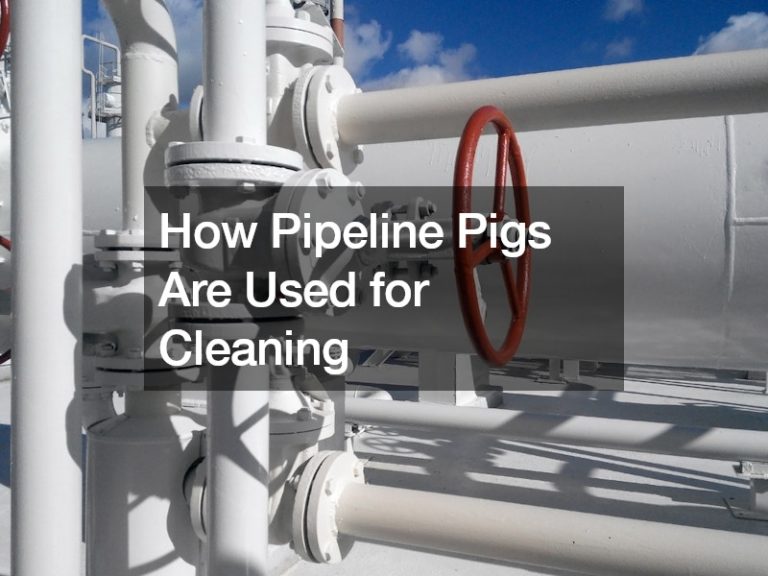Gas pipelines play a crucial role in transporting natural gas from production facilities to consumers worldwide. In this article, we delve into the intricacies of gas pipeline systems, exploring their construction, operation, and maintenance, as well as their environmental impact and future prospects in the energy industry.
The Role of Gas Pipelines in Natural Gas Transportation
Gas pipelines serve as the lifelines of the natural gas industry, facilitating the transportation of natural gas from extraction sites to end consumers across vast distances. These pipelines, spanning thousands of miles globally, are essential for ensuring a steady supply of natural gas to meet energy demands.
The intricate network of pipelines requires meticulous maintenance to uphold its integrity and efficiency. This involves various measures such as regular inspections using advanced technologies like smart pigs equipped with sensors to detect defects and the use of pipeline pigs for cleaning and removing deposits. With their robust construction and sophisticated operational mechanisms, gas pipelines play a pivotal role in the seamless transportation of natural gas, contributing significantly to global energy security and sustainability efforts.
Pipeline Construction and Installation: Planning for Safety and Efficiency
Pipeline construction and installation is a meticulous process that requires careful planning to ensure both safety and efficiency. Before laying down pipelines, extensive geological studies are conducted to identify optimal routes that minimize environmental risks and maximize operational effectiveness. Safety protocols are paramount throughout the construction phase, with adherence to rigorous standards and regulations to mitigate potential hazards.
Efficiency is also a key consideration, with construction timelines and costs closely monitored. Advanced technologies, such as pipeline pigs, are employed to streamline the process and maintain pipeline integrity. These specialized devices play a crucial role in cleaning pipelines and removing debris or deposits that could compromise performance.
Additionally, factors like terrain, weather conditions, and stakeholder engagement are carefully assessed to minimize disruptions and optimize project outcomes. By prioritizing safety and efficiency from planning through execution, pipeline construction projects can be successfully completed while meeting the highest standards of quality and reliability.
Pipeline Operations: From Compression to Transportation
Once pipelines are constructed and installed, they enter the operational phase, where gas transportation becomes the primary focus. The operation of pipelines involves a series of intricate processes aimed at ensuring the efficient and reliable movement of natural gas from production facilities to consumers.
Compression stations play a vital role in this phase, where gas is compressed to high pressures to facilitate its transportation through the pipeline network. These stations are equipped with sophisticated machinery, including compressors driven by gas turbines, to maintain the flow of gas over long distances.
In addition to compression, pipeline operations also involve ongoing maintenance activities to safeguard pipeline integrity and optimize performance. This includes the use of pipeline pigs, and specialized devices designed to clean and inspect pipelines for any signs of corrosion or damage.
By implementing comprehensive operational strategies that prioritize safety, efficiency, and reliability, pipeline operators can effectively meet the demands of transporting natural gas while minimizing environmental impact and ensuring regulatory compliance.
Maintaining Pipeline Integrity: Challenges and Solutions
Maintaining pipeline integrity is crucial for ensuring the safe and reliable transportation of natural gas. However, this task comes with its own set of challenges. One major challenge is the accumulation of deposits and corrosion within the pipelines, which can compromise their structural integrity and impede gas flow.
To address these challenges, pipeline operators employ various solutions, including the use of pipeline pigs. These specialized devices are inserted into the pipelines to clean and inspect them, removing deposits and identifying potential areas of weakness. By proactively addressing these issues, operators can minimize the risk of pipeline failures and ensure the continued operation of their infrastructure.
Environmental Considerations in Gas Pipeline Management
In gas pipeline management, environmental considerations play a significant role in decision-making. Pipeline operators must ensure that their operations minimize environmental impact, particularly in sensitive ecosystems.
This includes implementing measures to prevent leaks, reduce emissions, and protect wildlife habitats. Additionally, pipeline pigs are used for pipeline maintenance, helping to mitigate environmental risks by detecting and addressing issues such as corrosion and leaks promptly, thereby minimizing potential environmental harm.
The Future of Gas Pipelines: Innovations and Sustainability
The future of gas pipelines lies in innovations and sustainability. Emerging technologies are revolutionizing pipeline operations, enhancing efficiency, and reducing environmental impact.
With advancements such as smart sensors and robotic pipeline pigs, operators can ensure the sustainability of gas transportation while meeting evolving energy demands and environmental standards.
.


